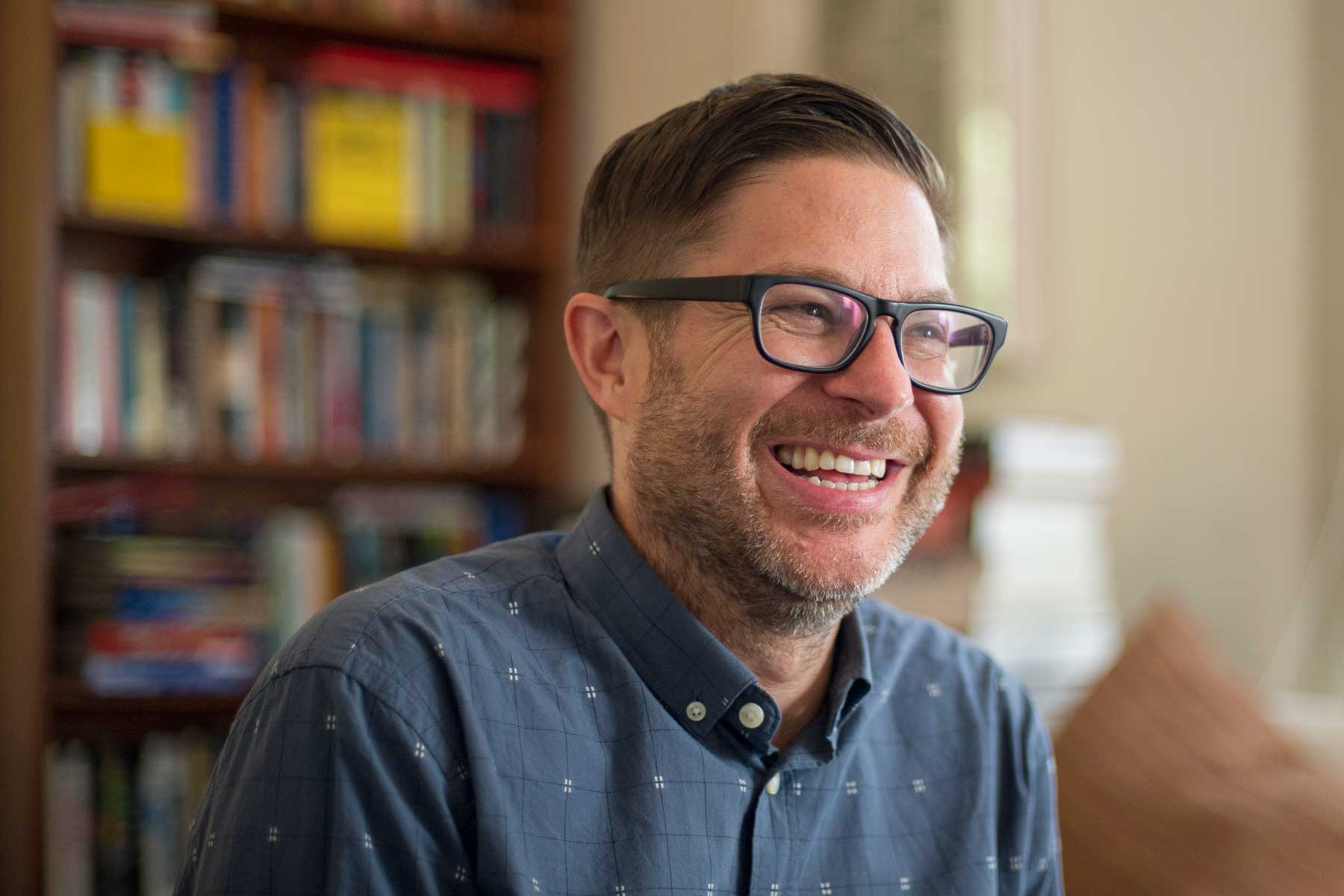$3 million gift creates cross-cultural communication chair at USC Annenberg
The chair’s first holder is Josh Kun, USC professor and historian who uses music to examine the connections we have to each other

The USC Annenberg School for Communication and Journalism has received a $3 million gift from a generous donor who wishes to remain anonymous, establishing an endowed chair dedicated to advancing innovation, leadership and research into the ways music and popular culture can serve as conduits for cross-cultural exchange. Josh Kun, professor of communication, will be the inaugural holder of the Chair in Cross-Cultural Communication.
Kun leverages USC Annenberg’s position in Los Angeles to advance the understanding of and appreciation for cultural differences. Kun, a 2016 MacArthur Fellow, uses music as a way to understand society, culture, social change, placemaking and community building. A nationwide leader of conversation and dialogue about differences in popular culture, heis best known for public projects that rethink the historical perspective of Los Angeles, Southern California and the U.S.-Mexico border.
“Professor Josh Kun is a true cultural historian whose work transcends the city and its borders and explores the connections that we have to each other,” USC Annenberg Dean Willow Bay said. “As Los Angeles becomes increasingly diverse and popular music becomes increasingly global, we are grateful to our visionary donors for recognizing the enormous potential of Josh’s work to bridge cultural divides and advance our understanding of cross-cultural connections.”
Josh Kun’s key collaborations
An author and editor of 10 books, Kun has led acclaimed collaborations with the Los Angeles Public Library to bring its historic sheet music to life through performances, new recordings and new writings as well as with The Getty Foundation’s Pacific Standard Time: LA/LA initiative to explore the musical networks that move between Los Angeles and various Latin American communities and cultures.
Kun’s work bridging traditional scholarship with the curation of exhibitions, installations and public humanities projectshas also included partnerships with organizations as diverse as the National Day Laborer Organizing Network, the California African American Museum, the Museum of Latin American Art, the Skirball Cultural Center, the San Francisco Museum of Modern Art, the Grammy Museum and the USC Norman Lear Center.
Kun has worked as a professor, journalist, researcher, essayist, curator, and television and radio host, focusing on pop culture and music in Los Angeles, along the U.S.-Mexico border and across the world in places of conflict and coalition. Most recently, as a 2018 Bosch Fellow at the American Academy in Berlin, he has extended his research on music and immigration in the U.S. to contemporary Europe, the Middle East and Africa. His upcoming book will focus on the role of music in responding to mass forced migrations, displacements and struggles for freedom of movement in the 21st century. His writings have appeared in The New York Times, The New Yorker, Los Angeles Times, LA Weekly, Los Angeles magazine, The Village Voice, San Francisco Bay Guardian, Rolling Stone and Spin, among others.
Inspired by a traditional DJ technique, Kun aspires to be a “crossfader,” someone who toggles and slides between different inputs. His aim is to focus on points of connection and intersections among different identities, cultures, communities, publics, platforms, disciplines, institutions, and ways of interpreting and living in the world.
Music is one of the best ways to demonstrate how cultures that may have been seen as historically separate actually have a great deal in common.
Josh Kun
“Music is one of the best ways to demonstrate how cultures that may have been seen as historically separate actually have a great deal in common,” Kun said. “But music also draws important boundaries and can aid in the creation of necessary spaces of refuge, assembly and sanctuary.
“Music shows us new maps. It can open us up to radically different perspectives and sometimes it can help us push back against the normalizations of our own views,” he added. “I am incredibly honored to be inaugural holder of this chair and to continue to develop my work with a renewed sense of mission and dedication.”
The source of inspiration
Kun said a large part of his inspiration is drawn from his collaboration with students. At USC Annenberg, he has developed pioneering and popular courses such as “Sound Clash: Popular Music and American Culture,” which uses music as a method for exploring issues of race and ethnicity in the constitution of American culture and self. He also teaches “The Rhetoric of L.A.,” which analyzes cultural identities, urban geography, film and video, visual art, the built environment, food, and popular music as a means of peeling back the layers of L.A.
For his “To Live and Dine in L.A.” project, students played a key role in helping Kun comb through and analyze the Los Angeles Public Library’s over 20,000-piece menu collection, weaving together the threads of the city’s culinary history.
Kun is director of The Popular Music Project at USC Annenberg’s Norman Lear Center and co-editor (with Ron Radano and Nina Sun Eidsheim) of the influential interdisciplinary book series “Refiguring American Music” for Duke University Press. He serves on the editorial boards of the International Journal of Communication, Aztlán: A Journal of Chicano Studies, Journal of Popular Music Studies and Public Culture. Before joining USC Annenberg, Kun was associate professor of English at the University of California, Riverside.
He holds a PhD in ethnic studies from the University of California, Berkeley and a joint appointment in the USC Dornsife College of Letters, Arts and Sciences’ Department of American Studies and Ethnicity.



